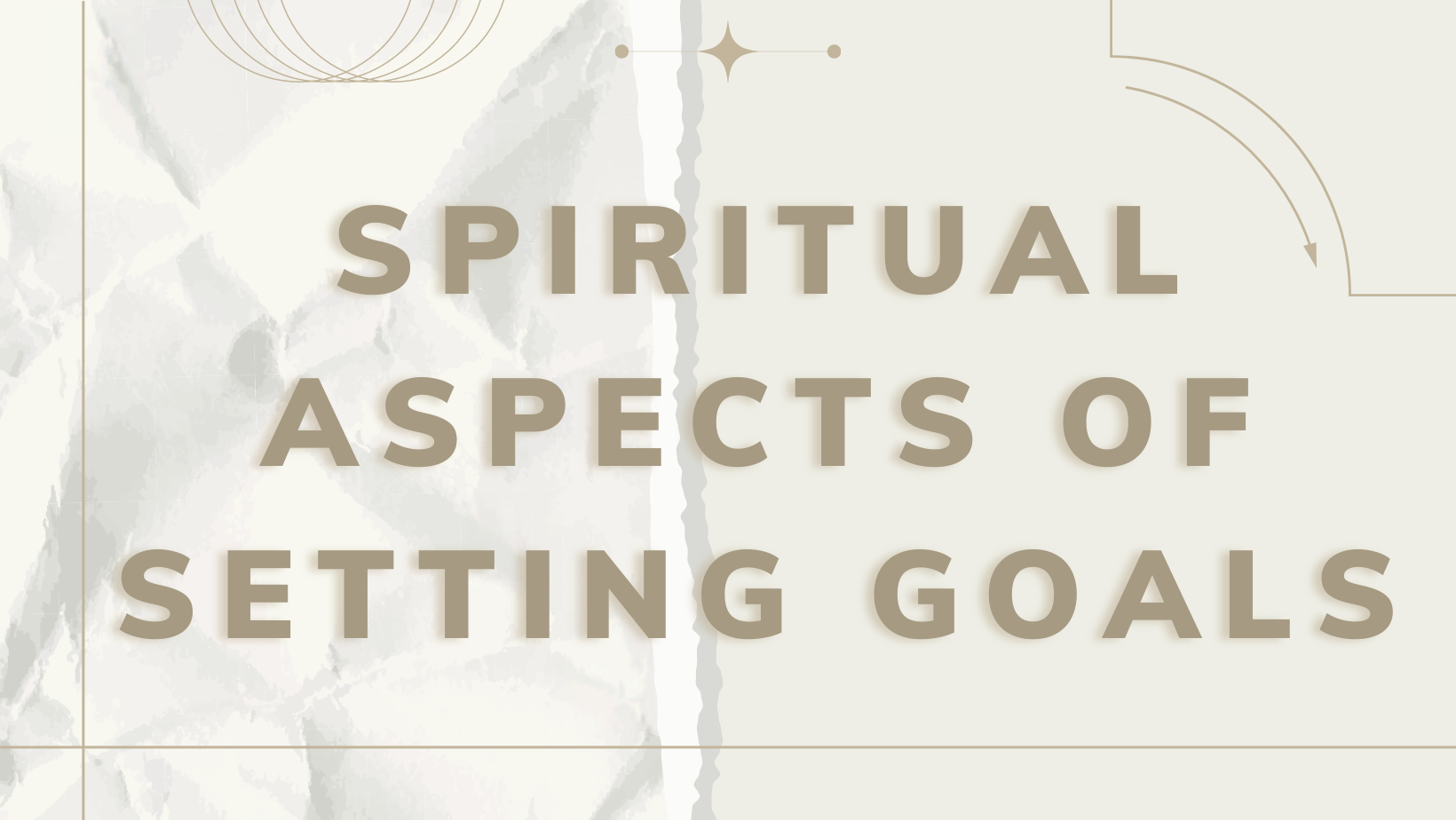Spiritual Aspects of Setting Goals
One of the hallmarks of a MAS gathering is a small reminder at the beginning for everybody present to renew their intentions. Have you ever wondered why emphasis is placed on this simple action? We first need to understand the importance that Iﷺm has placed on intentions to truly understand the beauty of it. If I were to ask you, the reader, to tell me one hadith of our beloved ﷺ, many of us might say the famous hadith known as the hadith of intentions. This is a hadith in which our beloved ﷺ says
سَمِعْتُ رَسُولَ اللَّهِ صلى الله عليه وسلم يَقُولُ: ” إنَّمَا الْأَعْمَالُ بِالنِّيَّاتِ، وَإِنَّمَا لِكُلِّ امْرِئٍ مَا نَوَى، فَمَنْ كَانَتْ هِجْرَتُهُ إلَى اللَّهِ وَرَسُولِهِ فَهِجْرَتُهُ إلَى اللَّهِ وَرَسُولِهِ، وَمَنْ كَانَتْ هِجْرَتُهُ لِدُنْيَا يُصِيبُهَا أَوْ امْرَأَةٍ يَنْكِحُهَا فَهِجْرَتُهُ إلَى مَا هَاجَرَ إلَيْهِ”.
I heard the Messenger of Allah (peace be upon him), say
“Actions are according to intentions, and everyone will get what was intended. Whoever migrates with an intention for Allah and His messenger, the migration will be for the sake of Allah and his Messenger. And whoever migrates for worldly gain or to marry a woman, then his migration will be for the sake of whatever he migrated for.”
Related by Bukhari & Muslim
Abu Ubaid said the following regarding this hadith: “The Prophet ﷺ encompassed all of the affairs of this world in one sentence, ‘Whoever enters anything into this religion of ours that does not belong, will have it rejected.’ And he encompassed all of the affairs of the hereafter in one sentence, ‘Every action is based on its intention.’” Meaning if we want to achieve success in this life, our best chances are in following the sunnah of our beloved ﷺ, and if we want success in the Hereafter we must look at our intentions for all of the actions that we are engaging in, especially those actions that are supposed to draw us near to our Creator ﷻ.
Abu Ubaid also said the following about this hadith: “There is no report of the Prophet ﷺ that is more comprehensive, self-sufficient and having more important points to it than this hadith.” It wasn’t just Abu Ubaid who held this hadith to this degree of importance; Imam Ahmed considered this Hadith as covering a third of Islamic Knowledge. Imam Shafi’ee said that his hadith encompasses 70 chapters of fiqh. Imam Abu Dawud stated that this is one of four statements of our beloved ﷺ that encompass the entire religion.
AbdulRahmaan ibn Mahdi, one of our lumineers from the righteous predecessors stated concerning this hadith: “It is a must for everyone who is to write a book to begin with this hadith in order to instill within the student the need for proper intention.” This is advice that should be written in gold. Everytime a student picks up a book or does anything from which he is hoping to earn the pleasure of Allah ﷻ he should receive this reminder to set the proper intentions for what is to follow. Being intentional in the things that we do is what determines the success of an action both in this life and the next.
So far in this blog I have been using “intentions” to define the word “Niyyah,” but in reality this translation does not encompass the entire word. If we were looking for a proper translation of the word Niyyah in English, it would mean the following: endeavor, intention, purpose, resolution, goal, aim, resolve, determination, and so forth. Any resolution, goal, or aim that we set for ourselves is considered our Niyyah. When we set our intention, purpose, resolution, goal and aim, we are making a deal with our nafs (soul) that we are going to attempt to accomplish whatever we have intended or aimed for. Sometimes this attempt that we are making might fall short.
Every time we fall short of accomplishing the goals that we have set for ourselves,we should be reminded of the beautiful hadith of our beloved ﷺ
عَنْ ابْنِ عَبَّاسٍ عَنْ رَسُولِ اللَّهِ صَلَّى اللَّهُ عَلَيْهِ وَسَلَّمَ قَالَ إِنَّ اللَّهَ كَتَبَ الْحَسَنَاتِ وَالسَّيِّئَاتِ ثُمَّ بَيَّنَ ذَلِكَ فَمَنْ هَمَّ بِحَسَنَةٍ فَلَمْ يَعْمَلْهَا كَتَبَهَا اللَّهُ عِنْدَهُ حَسَنَةً كَامِلَةً وَإِنْ هَمَّ بِهَا فَعَمِلَهَا كَتَبَهَا اللَّهُ عَزَّ وَجَلَّ عِنْدَهُ عَشْرَ حَسَنَاتٍ إِلَى سَبْعِ مِائَةِ ضِعْفٍ إِلَى أَضْعَافٍ كَثِيرَةٍ وَإِنْ هَمَّ بِسَيِّئَةٍ فَلَمْ يَعْمَلْهَا كَتَبَهَا اللَّهُ عِنْدَهُ حَسَنَةً كَامِلَةً وَإِنْ هَمَّ بِهَا فَعَمِلَهَا كَتَبَهَا اللَّهُ سَيِّئَةً وَاحِدَةً
Ibn Abbas reported: The Messenger of Allah, peace and blessings be upon him, said, “Verily, Allah has recorded good and evil deeds and He made them clear. Whoever intends to perform a good deed but does not do it, Allah will record it as a complete good deed. If he intends to do it and does so, Allah Almighty will record it as ten good deeds, up to seven hundred times as much or even more. If he intends to do an evil deed and does not do it, Allah will record for him one complete good deed. If he does it, Allah will record for him a single evil deed.”
Look at the mercy of Allah ﷻ when we make intentions or resolutions to do something good, that thoughtis rewarded; actually doing it multiplies the reward. And how just is Allah ﷻ that even when we commit a sin we are only held responsible for it once over, instead of being held responsible or thinking about it or even planning to do it.
When we set our goals and intentions, we should understand that it is possible for us to earn rewards for the setting as well as the completion of those goals.

